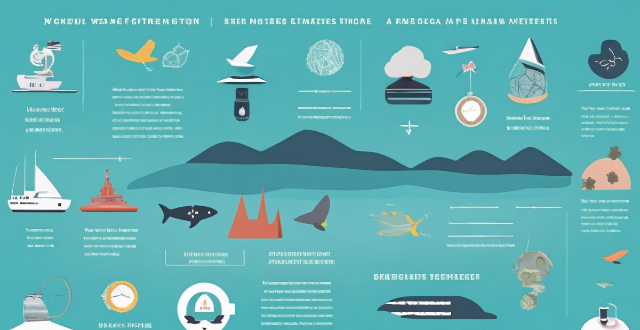Climate change affects various sectors differently. In agriculture, changes in crop yields, shifts in planting seasons, increased pest and disease pressure, and water scarcity may occur. Health issues include heat-related illnesses, spread of diseases, air quality problems, and mental health concerns. Economic impacts involve job losses, infrastructure damage, supply chain disruptions, and investment risks. Environmental effects encompass loss of biodiversity, ocean acidification, deforestation, and sea level rise. It is crucial for all stakeholders to take measures to mitigate these impacts and adapt to the changing climate.

The Potential Impacts of Climate Change on Different Sectors
Climate change is a complex and multifaceted issue that affects various sectors in different ways. Here are some of the potential impacts:
Agriculture
- Changes in Crop Yields: Climate change can lead to changes in crop yields, either positively or negatively depending on the location and type of crop. For example, warmer temperatures may increase yields in some areas but decrease them in others due to factors such as drought or pests.
- Shifts in Planting Seasons: As weather patterns change, farmers may need to adjust their planting seasons to ensure optimal growth conditions for their crops.
- Increased Pest and Disease Pressure: Warmer temperatures can lead to increased populations of pests and diseases that can harm crops.
- Water Scarcity: Droughts caused by climate change can reduce the availability of water for irrigation, affecting crop production.
Health
- Heat-Related Illnesses: Rising temperatures can lead to an increase in heat-related illnesses such as heat stroke and dehydration.
- Spread of Diseases: Changes in temperature and precipitation patterns can affect the distribution of disease vectors like mosquitoes, leading to an increased risk of diseases like malaria and dengue fever.
- Air Quality Issues: Climate change can exacerbate air pollution, which can have negative impacts on respiratory health.
- Mental Health Concerns: Extreme weather events and displacement due to climate change can have long-term effects on mental health.
Economy
- Job Losses: Changes in climate can affect industries such as agriculture, fishing, and tourism, leading to job losses in these sectors.
- Infrastructure Damage: Extreme weather events like hurricanes and floods can cause significant damage to infrastructure, resulting in costly repairs and disruptions to services.
- Supply Chain Disruptions: Changes in climate can affect supply chains, leading to shortages of goods and higher prices.
- Investment Risks: Companies operating in sectors heavily affected by climate change may face increased financial risks due to unpredictable weather patterns and regulatory changes.
Environment
- Loss of Biodiversity: Rising temperatures and changing rainfall patterns can threaten the survival of plant and animal species, leading to a loss of biodiversity.
- Ocean Acidification: Increased carbon dioxide levels in the atmosphere can lead to ocean acidification, which harms marine life and disrupts ecosystems.
- Deforestation: Climate change can contribute to deforestation as trees die from drought or wildfires, reducing the ability of forests to absorb carbon dioxide.
- Sea Level Rise: Melting ice caps and glaciers due to rising temperatures can lead to sea level rise, which can have devastating effects on coastal communities and ecosystems.
These are just some examples of the potential impacts of climate change on different sectors. It is important for individuals, governments, and organizations to take action to mitigate these impacts and adapt to the changing climate.